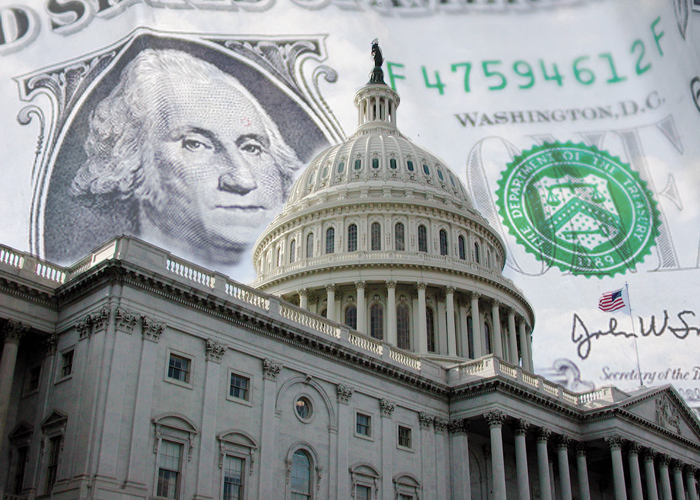The 2014 Pew Religious Landscape Survey recently asked 35,000 Americans a host of questions about their religious attitudes and behaviors. The survey results contain a goldmine of information on religion in contemporary American society.
One portion of the survey asked respondents about their views toward churches and religious institutions. There is a strong consensus among Americans that organized religion is a force for good in many ways. For instance, 89% of Americans agree that it “brings people together and strengthens community bonds,” 87% agree that it “plays an important role in helping the poor and needy,” and 75% agree that it “protects and strengthens morality in society.” These views are shared by Americans across religious denominations, with atheists and Jehovah’s Witnesses being notable exceptions on some questions (see here for full results).
Despite these positive evaluations, the survey also showed that more Americans are wary toward religious institutions when it comes to money, power, and politics. 52% of survey respondents agree that churches and other religious organizations “are too concerned with money and power,” 51% agree that they “focus too much on rules,” and 48% agree that they “are too involved with politics.”
(Source: http://www.pewforum.org/2015/11/03/u-s-public-becoming-less-religious/pf-2015-11-03_rls_ii-58/).
It is interesting to note that Mormons stand out as clear outliers on these questions. Only 35% of American Mormon respondents agree that religious organizations are too concerned with money and power. Only 27% of Mormons agree that churches focus too much on rules, and only 30% agree that churches are too involved in politics. In fact, Mormons have lower levels of concern on these issues than any other religious tradition in America.
In other words, Mormons are less likely than members of any other religious tradition to be worried about organized religion’s focus on money, power, rules, and involvement in politics.
What is going on here?
Here are some possible interpretations:
EXPLANATION 1: It is possible that this may merely be a spurious relationship (i.e. “correlation but not causation”). The Pew survey also found that Mormons have one of the highest rates of religious service attendance and personal importance of religion in one’s life compared to other American religious traditions. It’s possible that highly religious individuals are more positive toward churches and religious institutions in general, thus making traditions with higher than average levels of religiosity (Mormons, Evangelical Protestants, etc.) less concerned about organized religion’s focus on money, power, rules, and politics. If this interpretation is true, there’s nothing especially unique about Mormonism that leads to a lack of concern about money, power, and politics that wouldn’t be shared by highly religious individuals in other faith traditions. The fact that Evangelicals have similar levels of concern on these issues as Mormons lends some support to this possibility. (This can be assessed definitively when Pew releases the data for public analysis. And yes, that’s already on my “to do” list!)
EXPLANATION 2: The survey question specifically asked about impressions toward “churches and other religious organizations” broadly speaking, but it’s possible that some (or many) respondents were thinking of their own church or religious tradition when answering the question. Thus, these survey findings might simply indicate that Mormons are more positive toward (or at least less willing to criticize) their own religious institution than members of other traditions. In this interpretation, Mormons are more likely than members of other traditions to think “sure, everyone else has problems with money, power, rules, and politics, but our church doesn’t!”
EXPLANATION 3: It’s also entirely possible that most American Mormons simply don’t see a problem with organized religion’s current level of focus on money, power, rules, or political involvement.
If explanation #1 is correct, then this isn’t necessarily a “Mormon” question but rather an indicator that religious people prefer that religious institutions have money, power, and political influence. Go figure!
If explanation #2 is correct, it begs the question of why Mormons are less critical of their own church than other Americans are of their own religious institutions on questions of money, power, rules, and political influence.
If explanation #3 is correct, it begs the question of why Mormons approve of the current level of organized religion’s focus on money, power, rules, and political influence.
Discuss.
(Image source: http://everyvoice.org/featured/2014topstories)






This is really interesting, Benjamin. I think I lean toward your second explanation. It seems likely to me that Mormons are less critical of their own church than are members of other religious traditions.
Why? Some guesses: we select for obedience and compliance more than other religions do. I’m guessing we talk about obedience more than other religions. Certainly becoming or remaining a member requires going along with control of your life at a greater level than for most other churches (for example, drink choices, underwear choices, decisions about how many ear piercings to get).
Also, I don’t know a whole lot about Protestants in general, but it seems like many (most?) of them are more willing to consider changing churches or even denominations, which would suggest they feel less tied to one church and perhaps more open to criticizing it. And certainly American Catholics have the reputation of ignoring anything the Pope says that they don’t like (for example, famously ignoring the rule against using birth control). So perhaps both Protestants and Catholics have reasons why they’re less prone to be uncritical of power exercised by their own churches. (I won’t even hazard guesses about members of non-Christian religions.)